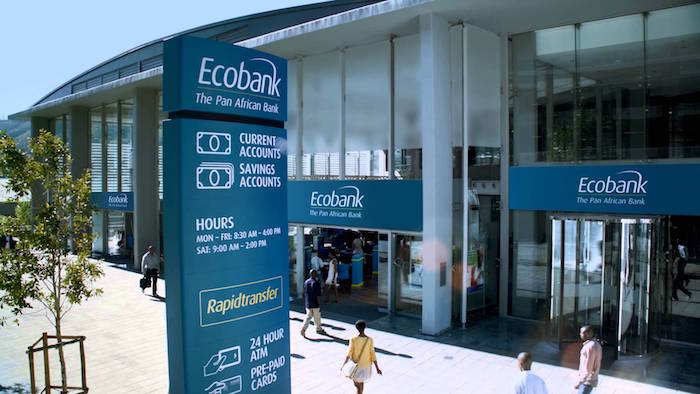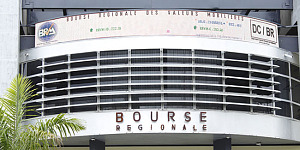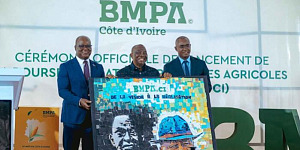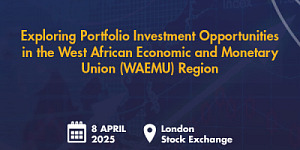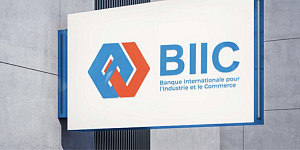Fitch Ratings has affirmed Togo-based Ecobank Transnational Incorporated's (BRVM:ETIT, GSE:ETI, NGSE:ETI) Long-Term Issuer Default Rating (IDR) at 'B'. The Outlook is Stable. ETI is the holding company of the pan-African Ecobank group. A full list of rating actions is at the end of this rating action commentary.
KEY RATING DRIVERS
IDRs and VIABILITY RATING
Fitch rates ETI, a pan-African bank holding company, based on the group's consolidated risk profile. ETI's Long- and Short-Term IDRs are driven by the group's intrinsic creditworthiness, as captured by its 'b' Viability Rating (VR).
The VR takes into consideration the challenging and volatile operating environments of its subsidiaries in Sub-Saharan Africa (SSA), and particularly in Nigeria (B+/Negative), which accounts for around 28% of the group assets. The VR also factors in ETI's still weak asset quality, variable profitability, despite strong revenue generating capacity, and modest capitalisation. We consider, ETI's company profile, including its geographic diversification, management and strategy and funding liquidity as relative strengths for the rating.
Our assessment of ETI's operating environment reflects business risks from transacting in low-rated sovereigns in the region (typically in the 'B' range and several with Negative Outlooks), pressure on these economies from low commodity prices and unpredictable policies, as well as developing financial markets and regulatory frameworks. ETI is regulated by BCEAO (Banque Centrale des Etats de l'Afrique de l'Ouest - Central Bank of West African States), and supervised by Commission Bancaire de l'UMOA (West African Monetary Union Banking Commission).
ETI's company profile benefits from franchise and business model strengths. Other than the major South African banking groups, ETI is the largest banking group in SSA. The group operates banking subsidiaries in 33 countries, under a single brand and operating platform and serves 16 million customers.
ETI is a non-operating bank holding company and its principal assets are its shares in the subsidiaries. As such, other than externally borrowed funds, ETI is entirely dependent on dividends and other revenue from subsidiaries to meet its own financial obligations. Although domiciled in Togo, ETI is effectively a 'non-resident' company and under a long-standing special agreement with the Togolese government, benefits from specific privileges and exemptions from ordinary company law in Togo. This includes ETI being exempt from local tax and foreign exchange controls on operations in foreign currencies or foreign securities with all countries outside of the UMOA zone.
We believe that management quality is a relative strength to the rating. The management team comprises highly experienced bankers from the region and internationally. Group heads are based in Lome, with close interaction with managements of subsidiary banks. ETI's strategy is coherent and achievable and hinges on consolidating the group's operations, strengthening the platform and expanding its reach and market share through digitalisation.
ETI benefits from limited synergies with its strategic shareholders Nedbank Group Limited (BB+/Stable, 21.2% shareholding) and Qatar National Bank Q.P.S.C. (QNB, A+/Stable/ 20.1%). These come from cross-border banking as well as the sharing of technical skills, strong governance practices and risk management expertise. Other shareholders include the IFC (14.1%), Public Invest Corporation of South Africa (PIC, 13.5%) and The Social Security and National Insurance Trust of Ghana (3.9%). With the influence of these shareholders and a wide ranging external review, we believe that ETI has addressed its widely publicised legacy corporate governance problems.
ETI has reduced its risk appetite and now focuses on loan diversification, transactional banking and short-term lending. Risk controls continue to improve. It is actively addressing legacy problem loans, but Fitch believes their resolution will be a long-lasting process. Given ETI's franchise, its asset quality remains sensitive to volatile emerging industries/sectors and low-rated sovereigns. ETI's impaired loans ratio stood at 9.6% at end-1H18 (end-2017: 10.7%) but we note further loan delinquencies in Nigeria and west Africa. Reserve coverage is strengthening, to 81% at end-1H18 (end-2017: 52.4%), primarily due to IFRS 9 implementation.
One of ETI's key strengths is the capacity to generate solid and diverse earnings and pre-impairment operating profitability from the group's network. Margins are healthy (partly attributable to low-cost funding), fee income contribution is strong but costs continue to be high and loan impairment charges remain volatile.
We believe that ETI's capitalisation is modest given its credit profile. Its Fitch Core Capital Ratio (end-2017: 14.4%) remains highly sensitive to foreign currency translation losses on foreign operations. As required by the BCEAO, ETI moved to Basel II/III standards in January 2018 reporting a total regulatory capital adequacy ratio (CAR) of 10.3% at end-2017 (28.8%, under Basel I). The decline in the CAR was mainly due to the regulatory adjustments with the deduction of the group's currency translation losses (US dollar reporting currency) no longer qualifying as Tier 1 capital and 100% risk weighting of government debt holdings outside of UMOA.
BCEAO requires a minimum CAR of 8.625% (including a capital conservation buffer of 0.625%) and ETI's target CAR is 14.0%. Recent steps to restore capital are positive and include a USD400million convertible bond subscribed by PIC and QNB.
ETI's double leverage ratio (100% at end-2017) is moderate and we expect this to remain stable given that neither the convertible bond nor any new funding at the holding company level will be down streamed to subsidiaries as equity. Sources of dividends and other cash flows up streamed to the holding company from subsidiaries are well diversified by geography. This mitigates the risk that potential payment interruptions (at holding company level) could result from restrictions imposed by any one jurisdiction.
ETI's standalone funding profile is sound, supported by healthy access to market funding. On a group basis, ETI's funding mix benefits from a large and diversified customer deposit base with retail deposits representing about half of total deposits. Liquidity is fungible to some extent across the network through an established "inter-affiliate placement programme".
The Stable Outlook reflects our expectations that the group's risk profile will remain stable, underpinned by diversification benefits that will help overcome pressures in certain key markets.
Fitch is withdrawing the expected ratings on ETI's proposed senior debt issuance as it is no longer expected to convert to final ratings as the company has not proceeded with the note issue within the previously envisaged timeline. The expected rating on the proposed notes was assigned on 14 June 2018.
Fitch bases its credit assessment on audited, consolidated financial statements for ETI. We have no reason to doubt that these financial statements do not provide a clear representation of the group's risk profile. However, we do not maintain public ratings on any of ETI's subsidiaries.
SUPPORT RATING AND SUPPORT RATING FLOOR
ETI's Support Rating (SR) of '5' and Support Rating Floor (SRF) of 'No Floor' are driven by the fact that Fitch does not assign a credit rating or credit opinion on the Togolese sovereign (ETI's domicile). It is Fitch's opinion that sovereign support cannot be relied upon.
Similarly, Fitch believes that some of the group's other important subsidiaries could be supported by their respective national authorities, but such support is unlikely to extend to ETI itself. While Nedbank and QNB are long-term and strategic investors in ETI, their current stakes in the group and the limited integration of operations mean that institutional support cannot be relied upon. As a result, institutional support is not factored into the ratings.
RATING SENSITIVITIES
IDRS and VR
A sharper deterioration in the operating environment of any of ETI's largest markets could lead to a downgrade of the VR and consequently the IDRs. The ratings are also sensitive to deterioration in asset quality, which would put further pressure on the group's capital position. ETI's IDRs may also be downgraded if there was a material increase in double leverage, or if restrictions are put in place that would impair the ability of ETI's subsidiaries to upstream dividends or other cash flows. Upside to the VR is limited at present given the volatile and challenging environment in which ETI operates.
SUPPORT RATING AND SUPPORT RATING FLOOR
The SR is unlikely to be upgraded or the SRF revised upwards, as we believe it is highly unlikely that either the Togolese authorities' propensity to provide support to the group would change.
The rating actions are as follows:
Long-Term IDR: affirmed at 'B'; Stable Outlook
Short-Term IDR: affirmed at 'B'
Viability Rating: affirmed at 'b'
Support Rating: affirmed at '5'
Support Rating Floor: affirmed at 'No Floor'
USD senior unsecured notes issue: withdrawn at 'B (EXP)'/'RR4'
CRITERIA VARIATION
ETI is a bank holding company, domiciled in Togo, of a banking group that has subsidiaries in 33 SSA countries. Unusually for the parent company of a banking group, it has very limited operations in its country of domicile (around 4% of consolidated assets). Fitch assesses ETI's economic and operating environment on the basis of a blended view of the risks posed by its material subsidiaries. Fitch has varied its criteria and adopted the same blended approach for its sovereign rating, financial market development and regulatory & legal framework sub-factors because we believe the bank's Togo domicile has an unusually low influence on these sub-factors and the risks arising from them for holding company creditors.




